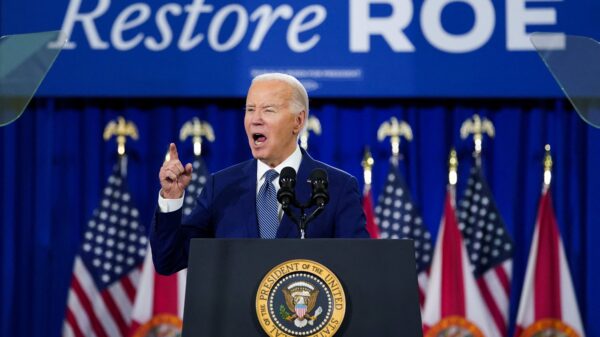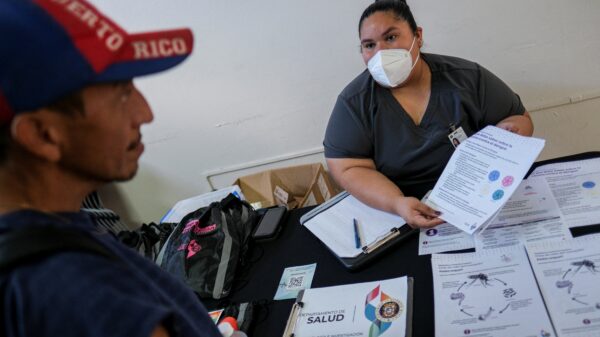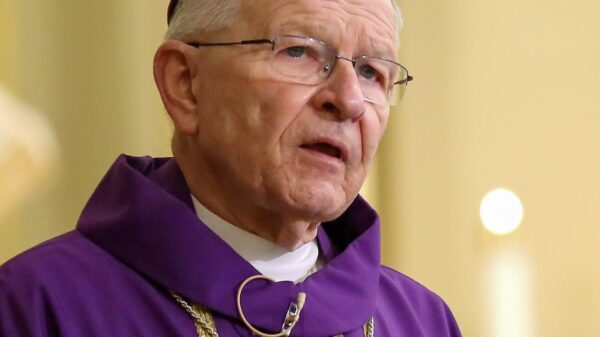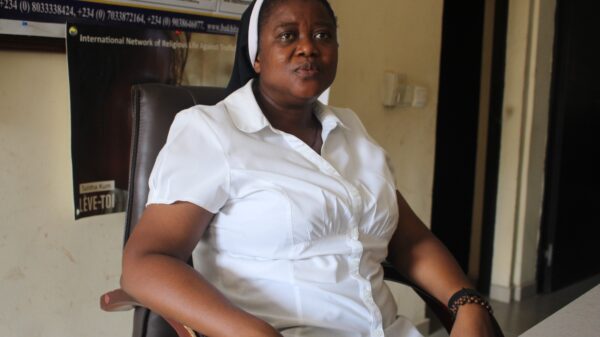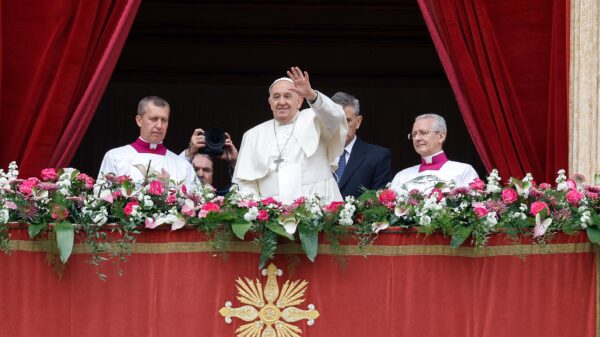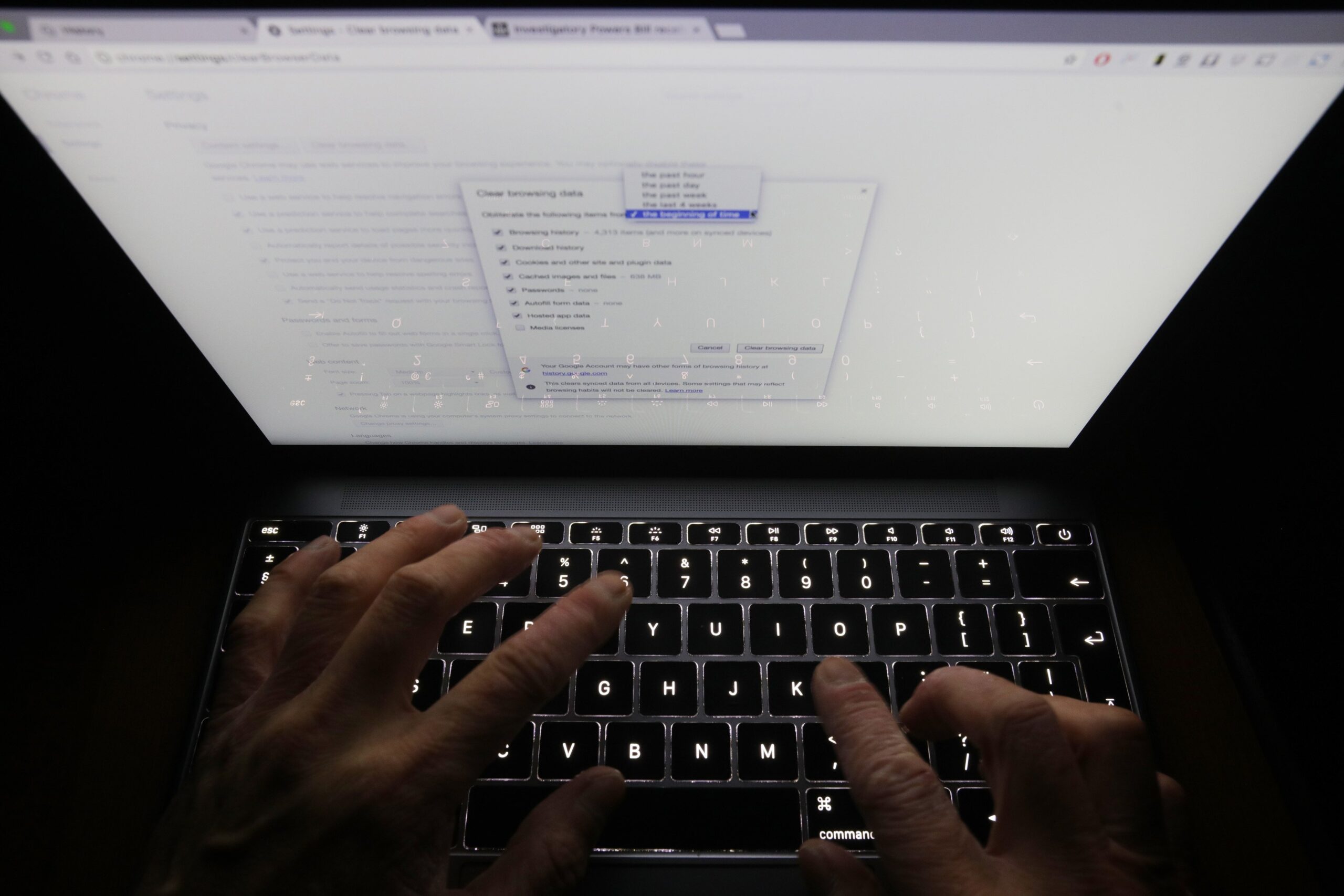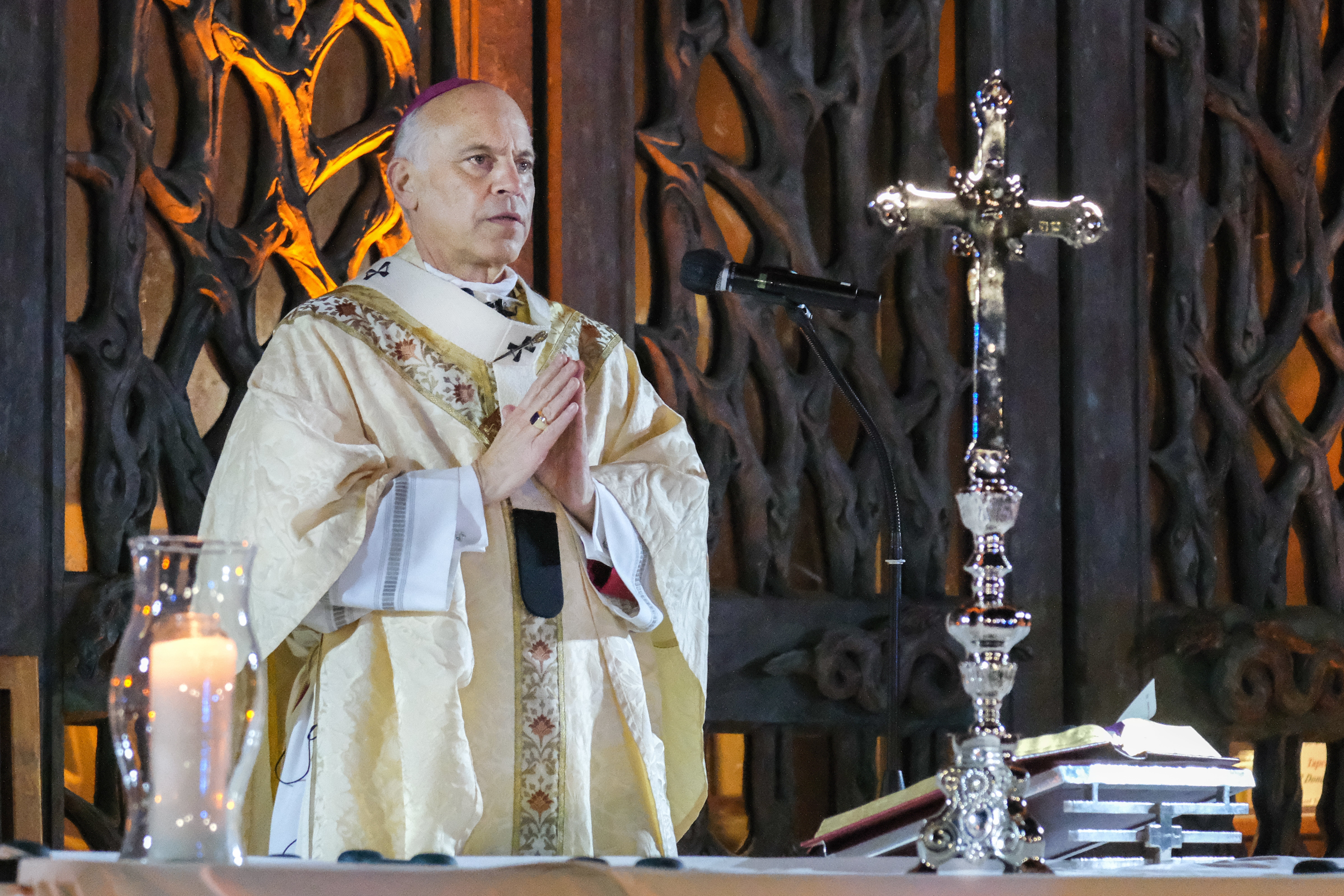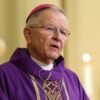(OSV News) — The word “missionary” can conjure up in the Catholic mind a vision of saintly figures traveling to distant lands and enduring heroic hardships to spread the good news of Jesus Christ.
Nowadays, however, the mission field is just as likely to be found in cyberspace — a fact recognized by the Synod on Synodality, which concluded its first session in Rome and is set to resume in October 2024.
“Digital culture,” said the synod’s synthesis report from Oct. 28, “represents a fundamental change in the way we conceive of reality and consequently relate to ourselves, one another, our surroundings, and even to God. … Missionaries have always gone with Christ to new frontiers, while the Holy Spirit pushed and preceded them. It is up to us to reach today’s culture in all spaces where people seek meaning and love, including the spaces they enter through their cell phones and tablets.”
“We need to provide opportunities for recognizing, forming, and accompanying those already working as digital missionaries, while also facilitating networking amongst them,” the synod’s report added.
Statista reports, “As of October 2023, there were 5.3 billion internet users worldwide, which amounted to 65.7 percent of the global population. Of this total, 4.95 billion, or 61.4 percent of the world’s population, were social media users.”
OSV News spoke with three “digital missionaries” to hear their thoughts about forming disciples of Jesus into missionaries for online evangelization.
“In several dioceses there are already institutes for lay formation,” said Father Iván Montelongo, judicial vicar and vocations director for the Diocese of El Paso, Texas. “I know that we have one here in my diocese. It would be a great thing in those institutions to start offering courses — curriculum guided toward that; toward learning about the internet, perhaps the nature of communications and about the Gospel.”
Father Montelongo, who regularly posts on X (formerly Twitter), attended the Synod on Synodality in Rome, and will return in 2024. One of six non-bishop voting delegates from the U.S. chosen to represent North America, he’s also the synod coordinator for his diocese.
While formation classes could equip Catholics to evangelize digital spaces, Father Montelongo advised a community bond is also essential.
“The connection to a church is important, too,” he added. “We can learn a lot of things online; take a course; I’m sure there’s great resources out there. But it should be a community that sends us, too — and we should come back to that community. I think that is necessary in order to form missionaries.”
Community roots and reinforcement gain even greater importance considering the often strident tone of online polemics.
“It’s hard sometimes when we see those debates — especially some platforms that don’t make that connection with the physical world, and don’t foster that encounter,” Father Montelongo said. “They can just become nasty places.”
As Catholic journalist and author John L. Allen Jr., observes in “Catholics and Contempt: How Catholic Media Fuel Today’s Fights, and What to Do About It,” the experience of social media shows that “people will say terrible things anonymously that they would never dare utter face-to-face. … In a sense, social media is designed to bring out the worst angels of our nature.”
That doesn’t mean, however, that Catholics should avoid online engagement; indeed, Father Montelongo was encouraged by the digital emphasis at the synod.
“Sometimes we are a little bit behind in these things,” he said, referring to the Catholic Church. “Changing our perspective from the internet as a dangerous place to the internet as mission territory — that paradigm shift is already a huge improvement.”
Preparation is important — but missionaries also need to just take the first step, Father Montelongo emphasized.
“The disciples went out. Jesus gave them enough — and they also learned on their way, too,” he said. “That should be our attitude — whether in person, whether online — being missionary disciples who are still learning,” said Father Montelongo. “We haven’t figured everything out — but we’re going out without fear, knowing that God is accompanying us.”
Sister Orianne Dyck, a Daughter of Saint Paul who serves her order as U.S. and Canada social media coordinator, said while specific formation could be helpful to digital missionaries, the first thing for Catholics to remember is their baptism.
“You have people who enter into the online space on purpose as missionaries — that’s their ministry. But then you also have just the average Joe, who — by virtue of his baptism — will always be a missionary, no matter where he or she is,” Sister Orianne explained. “So I think in that sense, it’s actually more important for us to form one another as everyday, normal Christians, able to live in a missionary way all of our life — because then that will translate over to how we interact with people online.”
Catholics’ remembering their baptism also should shape their online exchanges, said Sister Orianne.
“Being able to understand we’re called to communicate out of this covenant relationship we’ve entered into with Christ — that we have died with Christ; that we can live with Christ — should change everything about how we intake communication, and also how we output communication,” she added. “Because it means that everything I’m filling myself with I want to be for the glory of God and the peace of mankind — and likewise, everything that I share I want to be for the glory of God and the peace of mankind. And online no less so.”
It’s something she always remembers in her own online messaging, said Sister Orianne.
“People will maybe leave kind of an angry comment under a video or whatever that I post, and I try to respond in charity,” she said. “And when they notice that I’m responding to them in a different tone than every other Christian they’ve encountered online, they’re surprised — and it shouldn’t be that way. Every Christian should be able to communicate in charity and know the importance of it.”
Echoing Father Montelongo, Sister Orianne also emphasized true community as the foundation of communication.
“We are able to literally grow together — and to form one another and to encourage one another — in a way that is not possible if it’s just seen as a dissemination of information,” she noted. “It’s much more communal — which is really beautiful, because it becomes an even deeper way of building up the body of Christ. So there’s a huge gift in that — although it certainly comes with its own challenges.”
One of those challenges, said Matthew Warner, founder and CEO of Flocknote, a member management and messaging tool created for churches and ministries, is authenticity.
“The better Catholics learn to integrate digital tools into their lives in healthy, authentic ways, the better digital missionaries they will be able to be,” Warner said. “It’s easy for the digital tools to become distractions or misrepresentations of our true selves, which hinder our ability to build the strong relationships which lead to effective evangelization.”
But again, real community is vital.
“Personally, I think we put too much stock in a need for most people to evangelize online,” Warner shared. “Don’t get me wrong — there is a distinct need for a presence there from the church. But I think the most powerful evangelizing occurs in personal relationships and offline.”
“In fact,” he reflected, “the increase in massive digital activity — by both culture and the church — has coincided with a great increase in broken families, more depression and anxiety, fewer closer relationships and an acceleration of people no longer practicing or believing their faith.”
In 2019, a poll conducted by the American Psychiatric Association revealed, “More than one in three adults (38%) see social media usage as harmful to mental health; nearly half (45%) see social media usage as having both positive and negative impact on mental health; only 5% see it as having a positive impact.”
Warner also reminded Catholics that as digital missionaries, the mission field they’ll encounter online will often be close to home — and so making time to go offline and cultivate those relationships in person is critical.
“If we are going to reverse the mass exodus of the next generation leaving the church,” he suggested, “I think it’s going to happen more fundamentally by Catholics realizing God has already placed their most urgent mission field right in front of them — in their homes, with their neighbor, with their coworker they talk to every day … If more of us focused more there — and spent less time online — I think big things would start to happen.”
Kimberley Heatherington writes for OSV News from Virginia.
NOTES: A copy of the synod’s synthesis report is available here: https://www.synod.va/content/dam/synod/assembly/synthesis/english/2023.10.28-ENG-Synthesis-Report_IMP.pdf.


